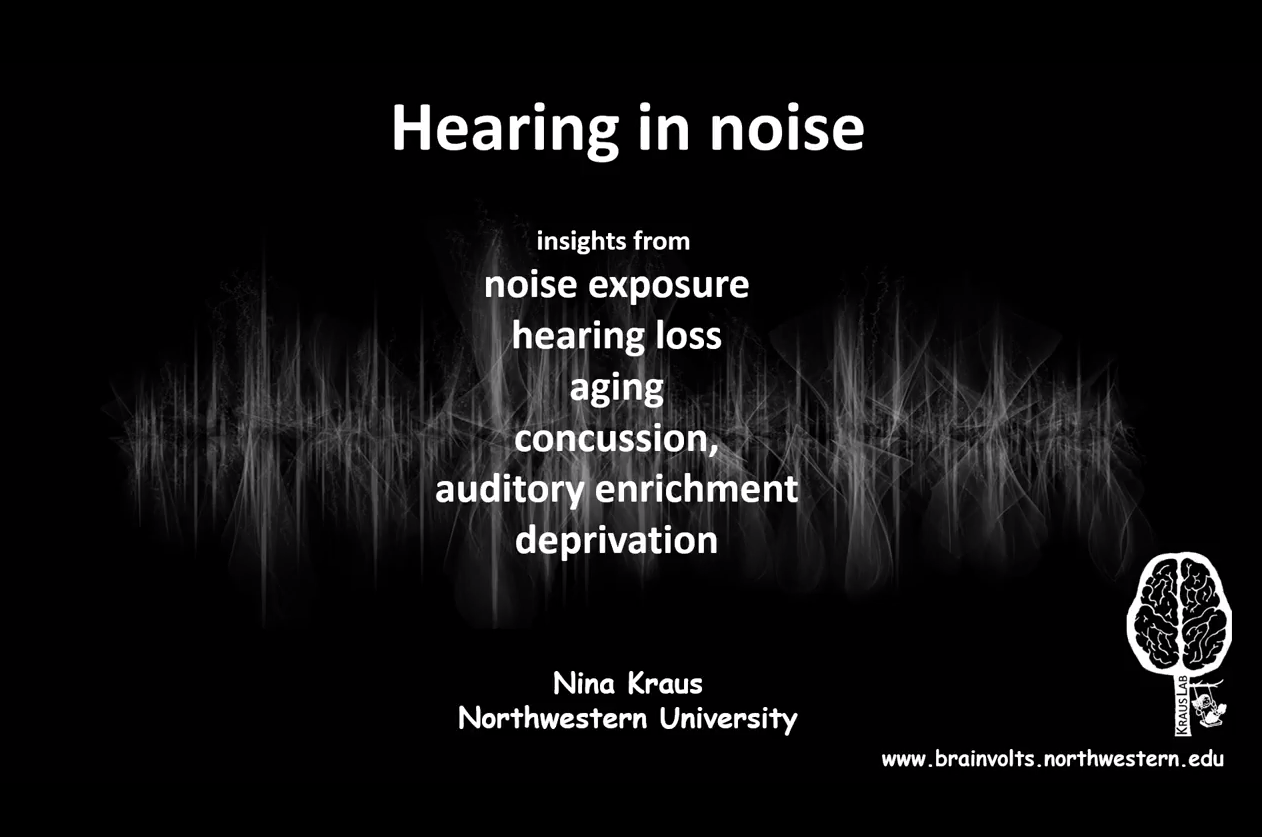
Phonak Audiology Seminar, August 20, 2018
Hearing in Noise: Insights from Noise Exposure, Hearing Loss, Aging, Concussion, Auditory Enrichment and Deprivation
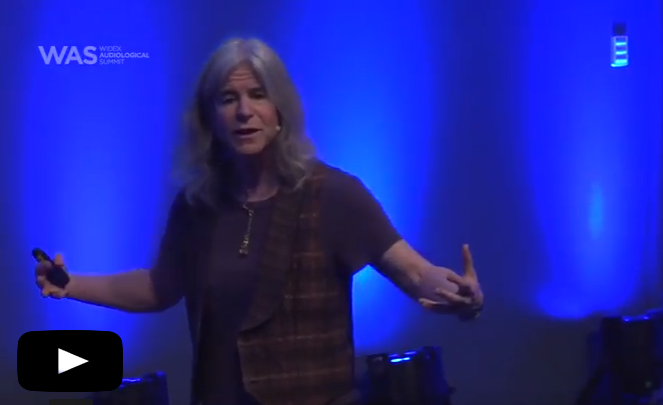
Widex Audiological Summit, May 4, 2017
Our life in sound and hearing health
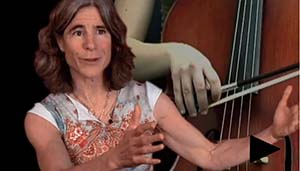
National Science Foundation
How Musical Training Affects Older Adults’ Speech Perception in a Noisy Environment
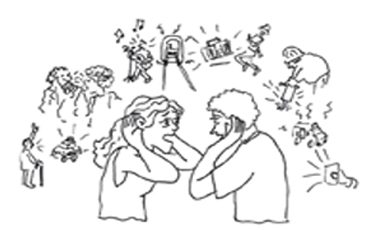
Publications
- White-Schwoch T, Woodruff Carr K, Thompson EC, Anderson S, Nicol T, Bradlow AR, Zecker SG, Kraus N (2015) Auditory processing in noise: a preschool biomarker for literacy. PLoS Biology. 13(7): e1002196.
- Thompson EC, Krizman J, White-Schwoch T, Nicol T, Estabrook R, Kraus N (2019) Neurophysiological, linguistic, and cognitive predictors of children’s ability to perceive speech in noise. Developmental Cognitive Neuroscience. 39: 100672
- White-Schwoch T, Anderson S, Krizman J, Bonacina S, Nicol T, Bradlow AR, Kraus N (2022) Multiple cases of auditory neuropathy illuminate the importance of subcortical neural synchrony for speech-in-noise recognition and the frequency-following response. Ear and Hearing. 43(2): 605-619
- Abrams D, Nicol T, Zecker S, Kraus N (2008) Right-hemisphere auditory cortex is dominant for coding syllable patterns in speech. Journal of Neuroscience. 28(15): 3958-3965.
- Anderson S, Chandrasekaran B, Yi H, Kraus N (2010) Cortical-evoked potentials reflect speech-in-noise perception in children. European Journal of Neuroscience. 32:1407-1413.
- Anderson S, Kraus N (2010) Objective neural indices of speech-in-noise perception. Trends in Amplification. 14:73-83.
- Anderson S, Kraus N (2010) Sensory-cognitive interaction in the neural encoding of speech in noise: a review. Journal of the American Academy of Audiology. 21:575–585.
- Anderson S, Kraus N (2011) Neural encoding of speech and music: implications for hearing speech in noise. Seminars in Hearing. 32: 129-141.
- Anderson S, Kraus N (2012) cABR: a neural probe of speech-in-noise processing. Proceedings of ISAAR 2011: Speech perception and auditory disorders. 3rd International Symposium on Auditory and Audiological Research. August 2011, Nyborg, DK. Dau T, Jepsen ML, Cristensen-Dalsgaard J, Poulsen T, eds.
- Anderson S, Parbery-Clark A, White-Schwoch T, Kraus N (2013) Auditory brainstem response to complex sounds predicts self-reported speech-in-noise performance. Journal of Speech, Language, and Hearing Research. 56(1): 31-43.
- Anderson S, Parbery-Clark A, Yi H, Kraus N (2011) A neural basis of speech-in-noise perception in older adults. Ear and Hearing. 32(6): 750-757.
- Anderson S, Skoe E, Chandrasekaran B, Kraus N (2010) Neural timing is linked to speech perception in noise. Journal of Neuroscience. 30(14): 4922-4926.
- Anderson S, Skoe E, Chandrasekaran B, Zecker S, Kraus N (2010) Brainstem correlates of speech-in-noise perception in children. Hearing Research. 270:151-157.
- Anderson S, White-Schwoch T, Parbery-Clark A, Kraus N (2013) A dynamic auditory-cognitive system supports speech-in-noise perception in older adults. Hearing Research. 300: 18-32.
- Bradlow AR, Kraus N, Hayes E (2003) Speaking clearly for children with learning disabilities: sentence perception in noise. Journal of Speech Language and Hearing Research. 46: 80-97.
- Chandrasekaran B, Hornickel J, Skoe E, Nicol T, Kraus N (2009) Context-dependent encoding in the human auditory brainstem relates to hearing speech in noise: Implications for developmental dyslexia. Neuron. 64: 311-319.
- Chandrasekaran B, Kraus N (2010) Music, noise-exclusion, and learning. Music Perception. 27(4): 297-306.
- Cunningham J, Nicol T, King CD, Zecker SG, Kraus N (2002) Effects of noise and cue enhancement on neural responses to speech in auditory midbrain, thalamus and cortex. Hearing Research. 169: 97-111.
- Hornickel J, Chandrasekaran B, Zecker S, Kraus N (2011) Auditory brainstem measures predict reading and speech-in-noise perception in school-aged children. Behavioural Brain Research. 216: 597-605
- Hornickel J, Skoe E, Nicol T, Zecker S, Kraus N (2009) Subcortical differentiation of voiced stop consonants relates to reading and speech in noise perception. Proceedings of the National Academy of Science. 106(31): 13022–13027.
- Kraus N (2012) Biological impact of music and software-based auditory training. Journal of Communication Disorders. 45: 403–410.
- Kraus N (2013) 20Q: Noise, aging and the brain - how experience and training can improve communication. AudiologyOnline. 11990
- Kraus N (2013) Playing music to improve hearing in noise and tune the brain. ENT & Audiology News. 22: 92-93.
- Kraus N, Anderson S (2014) Music benefits across the lifespan: enhanced processing of speech in noise. Hearing Review. 21(8): 18-21.
- Kraus N, Anderson S (2016) Auditory processing disorder: biological basis and treatment efficacy. Translational Research in Audiology, Neurotology, and the Hearing Sciences. Le Prell, CG, Lobarinas E, Popper AN, Fay RR, eds. Springer Science+Business Media, Berlin, Germany.
- Krizman J, Bradlow AR, Lam SS, Kraus N (2017) How bilinguals listen in noise: linguistic and non-linguistic factors. Bilingualism: Language and Cognition. 20(4):834-843.
- Parbery-Clark A, Marmel F, Bair J, Kraus N (2011) What subcortical-cortical relationships tell us about processing speech in noise. European Journal of Neuroscience. 33: 549–557
- Parbery-Clark A, Skoe E, Kraus N (2009) Musical experience limits the degradative effects of background noise on the neural processing of sound. Journal of Neuroscience. 29: 14100-14107.
- Parbery-Clark A, Skoe E, Lam C, Kraus N (2009) Musician enhancement for speech in noise. Ear and Hearing. 30(6): 653-661.
- Parbery-Clark A, Strait DL, Anderson S, Hittner E, Kraus N (2011) Musical experience and the aging auditory system: implications for cognitive abilities and hearing speech in noise. PLoS One. 6(5): e18082.
- Parbery-Clark A, Strait DL, Kraus N (2011) Context-dependent encoding in the auditory brainstem subserves enhanced speech-in-noise perception in musicians. Neuropsychologia. 49: 3338–3345.
- Russo N, Nicol T, Zecker S, Hayes E, Kraus N (2005) Auditory training improves neural timing in the human brainstem. Behavioral Brain Research. 156: 95-103.
- Russo NM, Zecker S, Trommer B, Chen J, Kraus N (2009) Effects of background noise on cortical encoding of speech in autism spectrum disorders. Journal of Autism and Developmental Disorders. 39: 1185-1196.
- Skoe E, Nicol T, Kraus N (2011) Cross-phaseogram: objective neural index of speech sound differentiation. Journal of Neuroscience Methods. 196: 308–317.
- Slater J, Kraus N (2016) The role of rhythm in perceiving speech in noise: a comparison of percussionists, vocalists and non-musicians. Cognitive Processing. 17(1): 79–87.
- Slater J, Kraus N, Woodruff Carr K, Tierney A, Azem A, Ashley R (2018) Speech-in-noise perception is linked to rhythm production skills in adult percussionists and non-musicians. Language, Cognition and Neuroscience. 33(6):710-717
- Slater J, Skoe E, Strait D, O'Connell S, Thompson EC, Kraus N (2015) Music training improves speech-in-noise perception: longitudinal evidence from a community-based music program. Behavioural Brain Research. 291: 244-252.
- Smith SB, Krizman J, Liu C, White-Schwoch T, Nicol T, Kraus N (2019) Investigating peripheral sources of speech-in-noise variability in listeners with normal audiograms. Hearing Research. 371: 66-74.
- Song J, Skoe E, Banai K, Kraus N (2011) Perception of speech in noise: neural correlates. Journal of Cognitive Neuroscience. 23(9): 2268–2279.
- Song J, Skoe E, Banai K, Kraus N (2012) Training to improve hearing speech in noise: biological mechanisms. Cerebral Cortex. 22: 1180-1190.
- Strait DL, Kraus N (2011) Can you hear me now? Musical training shapes functional brain networks for selective auditory attention and hearing speech in noise. Frontiers in Psychology. 2(113).
- Strait DL, O'Connell S, Parbery-Clark A, Kraus N (2013) Biological impact of preschool music classes on processing speech in noise. Developmental Cognitive Neuroscience. 6: 51-60.
- Strait DL, Parbery-Clark A, Hittner E, Kraus N (2012) Musical training during early childhood enhances the neural encoding of speech in noise. Brain and Language. 123: 191–201.
- Thompson E, Woodruff Carr K, White-Schwoch T, Otto-Meyer S, Kraus N (2017) Individual differences in speech-in-noise perception parallel neural speech processing and attention in preschoolers. Hearing Research. 344: 148-157.
- Thompson EC, Krizman J, White-Schwoch T, Nicol T, LaBella C, Kraus N (2018) Difficulty hearing in noise: a sequela of concussion in children. Brain Injury. 32:6 (763-769).
- Thompson EC, Woodruff Carr K, White-Schwoch T, Tierney A, Nicol T, Kraus N (2016) Hemispheric asymmetry of endogenous neural oscillations in young children: implications for hearing speech in noise. Scientific Reports. 6: 19737.
- Tierney A, Parbery-Clark A, Skoe E, Kraus N (2011) Frequency-dependent effects of background noise on subcortical response timing. Hearing Research. 282: 145-150.
- Warrier CM, Johnson KL, Hayes E, Nicol T, Kraus N (2004) Learning impaired children exhibit timing deficits and training-related improvements in auditory cortical responses to speech in noise. Experimental Brain Research. 157: 431-441.
- White-Schwoch T, Davies EC, Thompson EC, Woodruff Carr K, Nicol T, Bradlow AR, Kraus N (2015) Auditory-neurophysiological responses to speech during early childhood: effects of background noise. Hearing Research. 328: 34-47
- Wible B, Nicol TG, Kraus N (2002) Abnormal neural encoding of repeated speech stimuli in noise in children with learning problems. Clinical Neurophysiology. 113: 485-494.
- Cunningham J, Nicol T, Zecker SG, Bradlow AR, Kraus N (2001) Neurobiologic responses to speech in noise in children with learning problems: deficits and strategies for improvement. Clinical Neurophysiology. 112: 758-767.
- Kraus N (2017) Editorial: Hearing in noise: the brain health connection. Hearing Journal. 70(7): 6.
- Kraus N, Anderson S (2012) Hearing matters: hearing with our brains. Hearing Journal. 65(9): 48.
- Kraus N, Anderson S (2013) In older adults, the brain can still be trained to hear in noise. Hearing Journal. 66(5): 32.
- Kraus N, Nicol T (2022) 'Safe' noise harms the brain. Hearing Journal. 75(4)
- Kraus N, White-Schwoch T (2016) Confident, concise communication. Hearing Journal. 69(9): 44-46.
- Kraus N, White-Schwoch T (2016) Embracing the enigma of auditory processing disorder. Hearing Journal. 69(8): 40-46.
- Kraus N, White-Schwoch T (2017) Neural markers of listening in noise. Hearing Journal. 70(7): 44-45.
- Kraus N, White-Schwoch T (2018) Concussions impair listening-in-noise abilities. Hearing Journal. 71(5): 44-46
- Kraus N, White-Schwoch T (2018) Impact of life experiences on hearing in noise. Hearing Journal. 71(11): 46-47.
- Kraus N, White-Schwoch T (2019) Demystifying children's speech-in-noise perception. Hearing Journal. 72(9): 46-47
- Kraus N, White-Schwoch T (2019) Difficulty hearing in noise? Listen to the brain. Hearing Journal. 72(4): 46-48
- Kraus N, White-Schwoch T (2019) How children learn to hear in noise. Hearing Journal. 72(6): 46-48
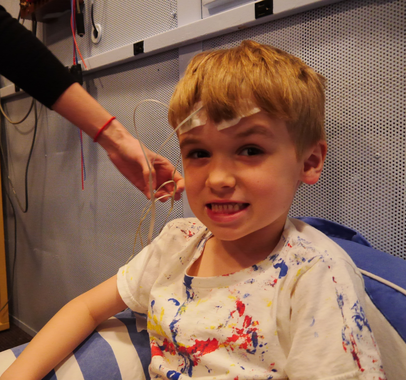 Only Human, WNYC, December 1, 2015
Only Human, WNYC, December 1, 2015
Your brain on sound
Spotlight on Auditory Neuropathy
Auditory Neuropathy
Download our Auditory Neuropathy Briefing
- White-Schwoch T, Krizman J, Nicol T, Kraus N (2021) Case studies in neuroscience: Cortical contributions to the frequency-following response depend on subcortical synchrony. Journal of Neurophysiology. 125: 273-281
- White-Schwoch T, Anderson S, Kraus N (2020) Long-term follow-up of a patient with auditory neuropathy and normal hearing thresholds. JAMA Otolaryngology-Head & Neck Surgery. 146(5): 499-501
- Kraus N, White-Schwoch T (2019) When (part of) the brain can't hear. Hearing Journal. 72(12): 40
- White-Schwoch T, Anderson S, Krizman J, Nicol T, Kraus N (2019) Case studies in neuroscience: Subcortical origins of the frequency-following response. Journal of Neurophysiology. 122: 844-848
- Kraus N (2001) Auditory neuropathy: an historical and current perspective. Auditory neuropathy: A new perspective on hearing disorders. 1-14. Sininger Y, Starr A, eds. Singular Thomson Learning, London, UK.
- Kraus N, Bradlow AR, Cheatham MA, Cunningham J, King C, Koch DB, Nicol T, McGee T, Stein L, Wright B (2000) Consequences of neural asynchrony: a case of auditory neuropathy. Journal of the Association for Research in Otolaryngology. 1: 33-45.
- Stein L, Tremblay K, Pasternak J, Banerjee S, Lindemann K, Kraus N (1996) Brainstem abnormalities in neonates with normal otoacoustic emissions. Seminars in Hearing. 17: 197-213.
- Kraus N, McGee T, Ferre J, Hoeppner JA, Carrell T, Sharma A, Nicol T (1993) Mismatch negativity in the neurophysiologic/behavioral evaluation of auditory processing deficits: a case study. Ear and Hearing. 14: 223-34.
- Kraus N, Özdamar Ö, Stein L, Reed N (1984) Absent auditory brain stem response: peripheral hearing loss or brain stem dysfunction?. Laryngoscope. 94: 400-6.
